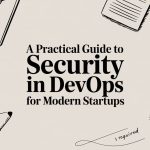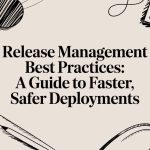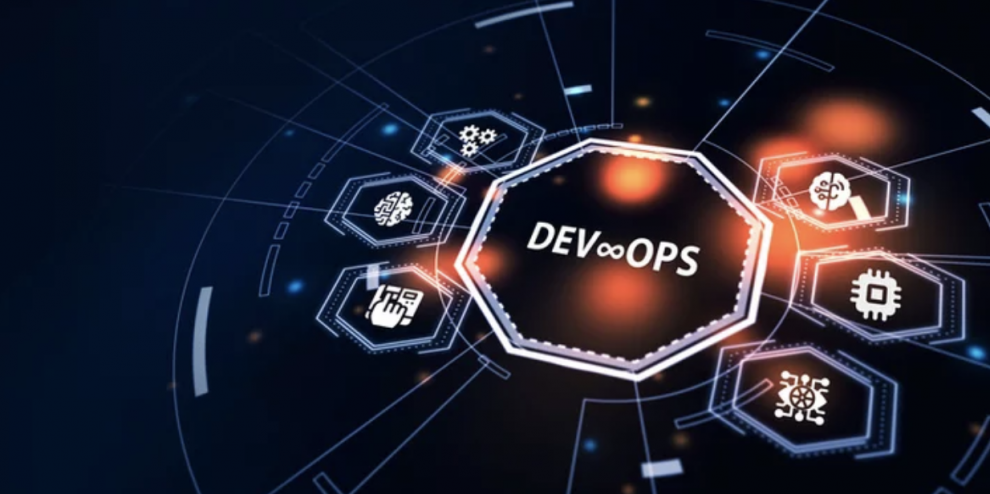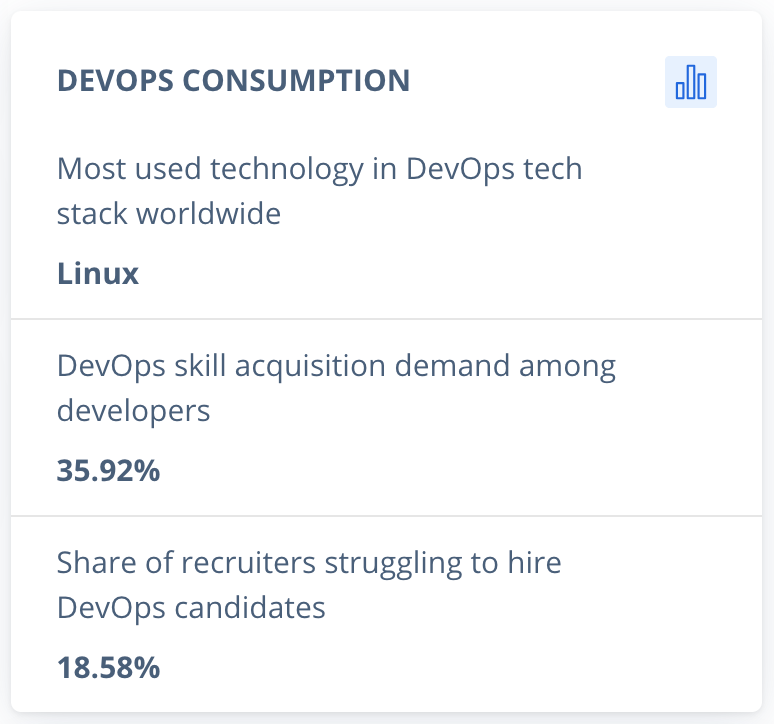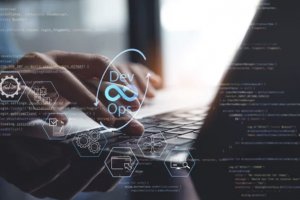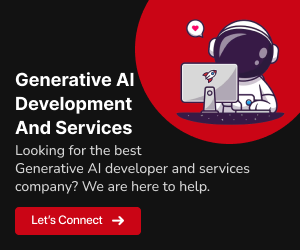Introduction
In the dynamic realm of technology and innovation, DevOps has emerged as a driving force behind successful projects and digital transformation. A key player in this journey is the DevOps engineer, a professional with the skills and expertise to bridge the gap between development and operations, enabling organizations to innovate with confidence. In this guide, we’ll also explore the critical steps to hiring the right DevOps engineer for your US project, ensuring that your innovation initiatives are backed by the right talent.
Key Responsibilities of a DevOps Engineer
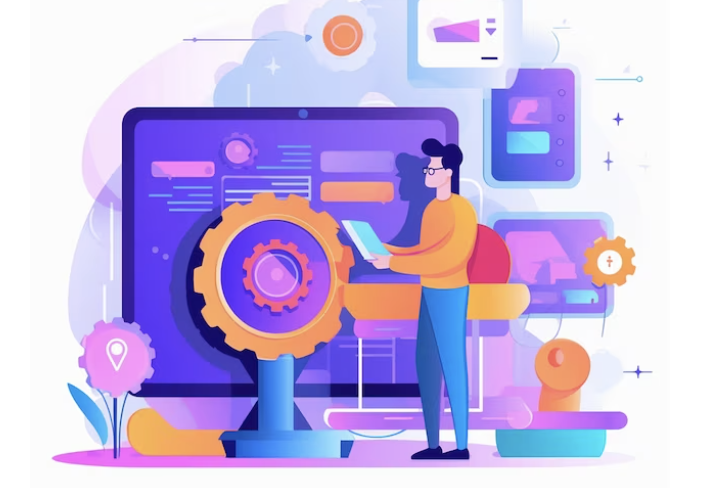
At the heart of DevOps lies the DevOps engineer, a multifaceted professional with a pivotal role in the software development lifecycle. DevOps engineers are responsible for breaking down traditional silos between development and operations teams. Furthermore, they orchestrate a culture of collaboration, automation, and rapid deployment.
Automation Maven:
DevOps engineers are the architects of automation. They design, implement, and maintain automated pipelines for tasks like code integration, testing, and deployment. By reducing manual interventions, they also enhance efficiency and minimize errors in the development cycle.Infrastructure Orchestrator:
Managing infrastructure is a core responsibility. Whether it’s on-premises servers or cloud-based resources (e.g., AWS, Azure, Google Cloud), DevOps engineers ensure that the underlying infrastructure is robust, scalable, and optimally configured to support the application.Monitoring and Incident Response:
Proactive monitoring is a hallmark of DevOps. They continuously monitor system performance, analyze logs, and set up alerts to detect anomalies. When incidents occur, they respond promptly, troubleshoot, and implement solutions to minimize downtime.Collaboration Champion:
Breaking down silos is a fundamental aspect of DevOps. These engineers also foster a culture of collaboration between development and operations teams. They facilitate communication, streamline workflows, and ensure that both sides work harmoniously toward shared objectives.
Essential Skills for a DevOps Engineer

Scripting and Coding Skills:
Proficiency in scripting languages such as Python, Ruby, or Shell is paramount. These languages enable DevOps engineers to write automation scripts and create custom solutions to unique challenges.Configuration Management:
Tools like Ansible, Puppet, and Chef are staples in a DevOps engineer’s toolkit. Furthermore, they use these tools to automate and manage system configurations, ensuring consistency and reproducibility.Containerization and Orchestration:
With the rise of containerization technologies like Docker and orchestration platforms like Kubernetes, DevOps engineers should also possess expertise in managing containerized applications and microservices.Cloud Computing:
Many projects leverage cloud platforms like AWS, Azure, or Google Cloud. Furthermore familiarity with these platforms, including infrastructure as code (IAC) practices, is essential for DevOps engineers.Collaboration Tools:
Proficiency in collaboration tools such as Slack, JIRA, Confluence, and version control systems like Git enables effective communication, project management, and code collaboration.Security Awareness:
DevOps engineers must understand security best practices to embed security throughout the development lifecycle. This includes securing code, containers, and infrastructure.Problem-Solving Prowess:
Rapid troubleshooting and problem resolution are key skills. DevOps engineers are adept at identifying issues, diagnosing root causes, and also implementing solutions to minimize disruptions.
In the complex, ever-evolving world of software development and operations, DevOps engineers are the architects of innovation. Their ability to automate processes, manage infrastructure, foster collaboration, and also resolve issues swiftly makes them indispensable assets to any US project.
Also read: A Beginner’s Guide to DevOps: Understanding, Implementing, and Thriving – US Guide
Understanding DevOps Hiring
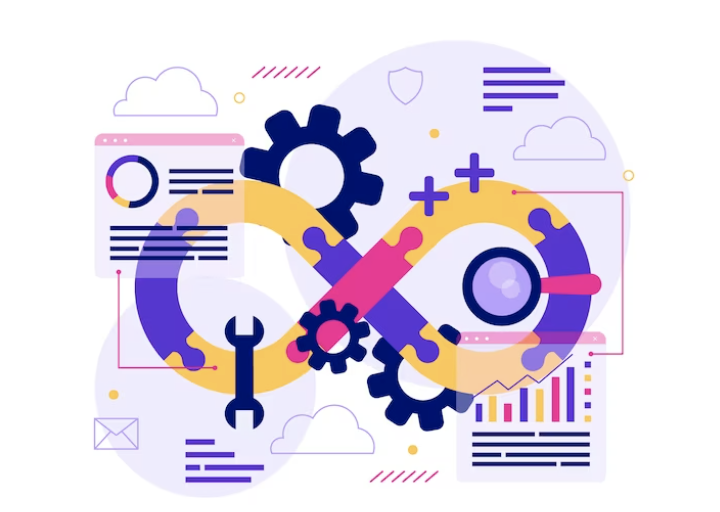
In the contemporary landscape of technology-driven businesses, remote DevOps hiring in the US has emerged as a strategic avenue to access a broader talent spectrum while capitalizing on the benefits of remote work. However, comprehending the nuances of this process is crucial for successful team assembly and project execution. Below are key insights into understanding remote DevOps hiring:
- Tapping into a Global Talent Pool: Remote hiring dismantles geographical barriers, allowing companies to select from a vast array of DevOps professionals dispersed across different regions. This global talent acquisition strategy can also bring unique perspectives and specialized skill sets to the table.
- Flexibility and Productivity: Remote DevOps developers often relish the flexibility that remote work offers. This can result in heightened job satisfaction and improved productivity. By allowing developers to work during their peak performance hours, companies can unlock their true potential.
- Communication and Collaboration Challenges: While remote hiring offers substantial advantages, it comes with its own set of challenges. Effective communication and collaboration become paramount in the absence of face-to-face interactions. Employers must leverage advanced tools and methodologies to bridge these gaps and maintain seamless teamwork.
Qualities to Consider in a DevOps Engineer
The ideal DevOps engineer possesses a unique blend of technical prowess and soft skills. Beyond technical expertise, look for individuals with exceptional problem-solving abilities, adaptability, and effective communication skills. This combination ensures that they can not only navigate complex technical landscapes but also collaborate seamlessly with cross-functional teams.
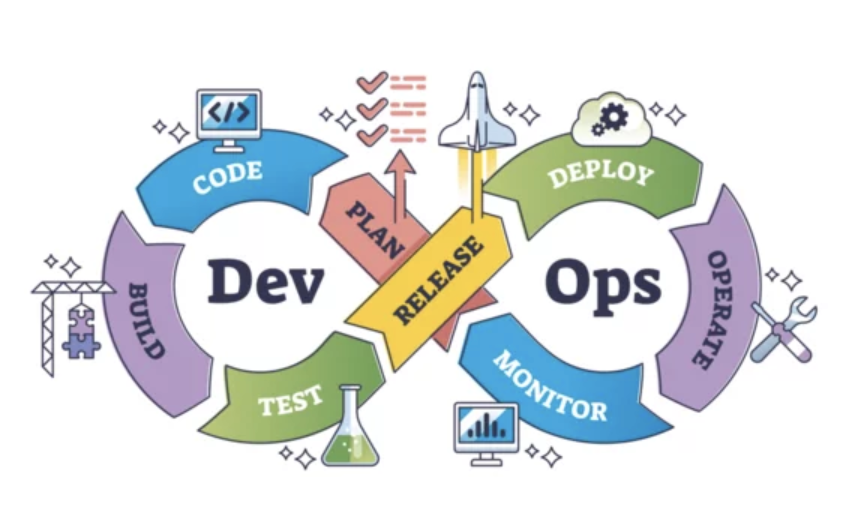
In the intricate realm of software development and operations, the role of a DevOps engineer holds paramount importance. DevOps engineers are the architects behind the seamless integration of development and IT operations, ensuring the rapid delivery of high-quality software. When seeking to hire a DevOps engineer, several key qualities come into play, making the selection process a critical step towards successful implementation. Below are some essential qualities to consider:
1. Technical Expertise and Problem-Solving Skills:
A top-tier DevOps engineer possesses a deep understanding of various programming languages, automation tools, and cloud technologies. This technical prowess enables them to create and manage automated deployment pipelines, configure infrastructure as code, and troubleshoot complex issues effectively. Their ability to analyze and resolve intricate technical challenges ensures the reliability and also stability of the software delivery process.
2. Collaboration and Communication Skills: DevOps is fundamentally about collaboration between development, operations, and QA teams also. Effective communication skills are indispensable for a DevOps engineer to bridge gaps between these groups. Clear and concise communication fosters understanding and cooperation, also ultimately resulting in smoother development cycles and timely software releases.
3. Continuous Learning and Adaptability: Furthermore the technology landscape is in a constant state of flux, with new tools and methodologies emerging regularly. A proficient DevOps engineer stays up-to-date with the latest trends, actively seeks out new tools, and adapts their approach as needed. This commitment to continuous learning ensures that the organization remains competitive and capable of leveraging cutting-edge practices.
4. Automation Mindset: Automation lies at the heart of DevOps. An adept DevOps engineer strives to automate routine tasks, enabling the team to focus on more strategic initiatives. This mindset not only speeds up processes but also minimizes human error, leading to consistent and predictable outcomes.
Successful Hiring Process for DevOps Engineers
Crafting a successful hiring process is a multifaceted endeavor that involves strategic planning and careful execution. Start by defining your project requirements, setting clear expectations for the role and responsibilities. Determine your budget and project duration to align with market rates and your business goals. Choose the right hiring model – full-time, part-time, contract, or hybrid – that suits your specific needs.
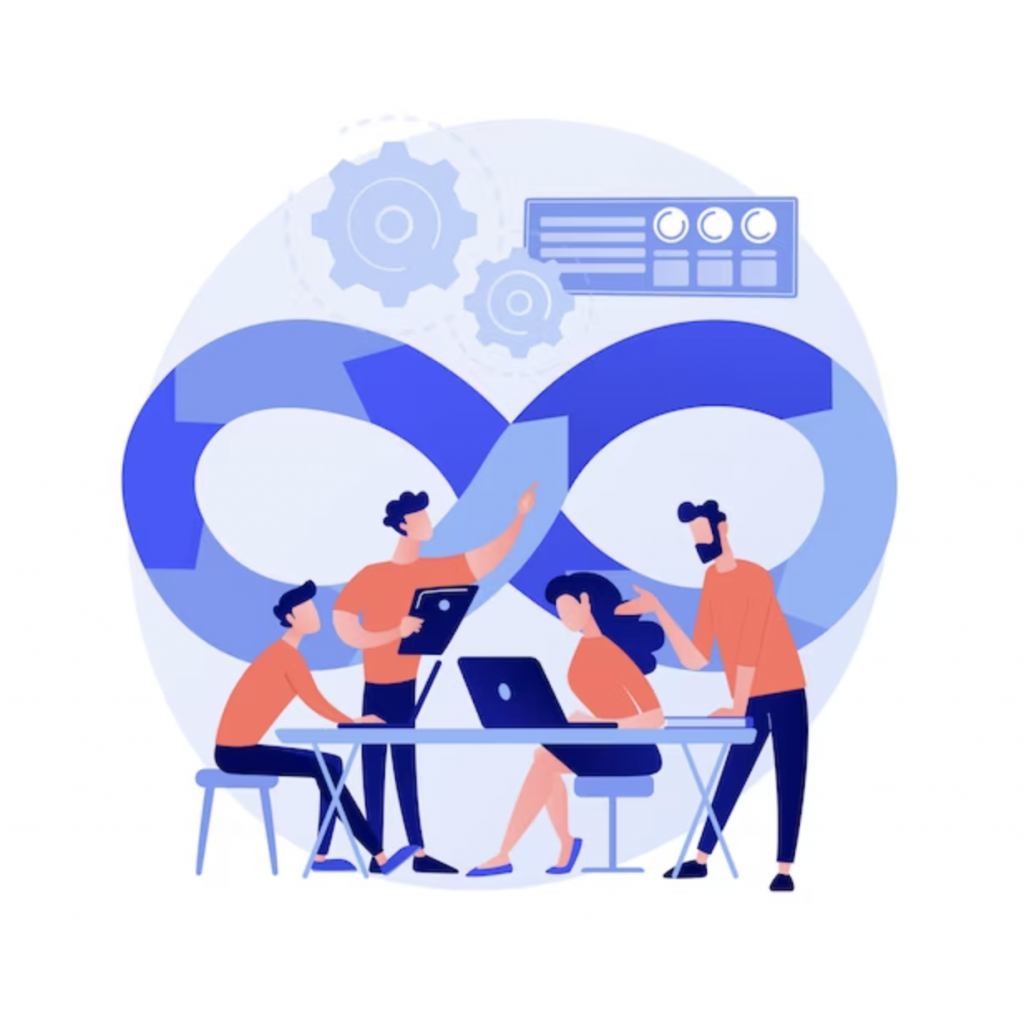
Hiring DevOps engineers requires a strategic approach to ensure that the selected candidates possess the necessary skills and qualities for effective software development and operations integration. Here is a tailored hiring process designed to attract, evaluate, and also select the best DevOps talent:
1. Job Description Crafting: Begin by crafting a comprehensive and accurate job description that outlines the role’s responsibilities, expectations, and required qualifications. Highlight the organization’s commitment to DevOps practices and its impact on the software development lifecycle. This description also serves as the first point of contact for potential candidates.
2. Skill Assessment and Screening: Create an initial screening phase where candidates submit their resumes or applications. To streamline the screening process, include specific questions that gauge their technical expertise, relevant experience, and alignment with DevOps principles. This phase also helps shortlist candidates who meet the basic qualifications.
3. Technical Evaluation: Conduct technical assessments or coding challenges that mirror real-world DevOps scenarios. These evaluations should assess candidates’ ability to write automation scripts, manage infrastructure as code, and also troubleshoot common problems. Consider using platforms that allow candidates to showcase their practical skills.
4. Behavioral and Soft Skills Interviews: The next step involves conducting interviews to evaluate candidates’ soft skills, problem-solving abilities, teamwork, and communication. DevOps engineers interact closely with various teams, so their interpersonal skills are crucial. Present hypothetical scenarios to gauge their approach to collaboration and conflict resolution.
5. Practical Scenario Assessment: Pose real-world scenarios that DevOps engineers are likely to encounter in their role. Ask candidates to propose solutions for scaling infrastructure, handling system failures, and furthermore optimizing performance. This assessment reveals their ability to apply DevOps concepts practically.

Crafting a Compelling Job Description
In the quest to hire the perfect DevOps engineer for your US project, crafting a compelling job description is akin to setting the stage for a great performance. An effective job description not only attracts top talent but also aligns candidate expectations with your project’s needs. This chapter guides you through the key components of creating a job description that resonates with DevOps professionals.
Key Components of an Effective Job Description

Clear and Concise Title:
Start with a clear job title that accurately reflects the position, such as “DevOps Engineer,” followed by any specific details relevant to your project.Summary and Objectives:
Begin with a brief summary that outlines the purpose of the role and its relevance to your project’s goals. For example, “We are seeking a DevOps engineer to streamline our deployment processes and enhance system reliability for our US project.”Key Responsibilities:
Provide a detailed list of the core responsibilities associated with the role. Also be specific about the tasks, projects, and areas of focus. For instance:- “Automate code integration and deployment processes using CI/CD pipelines.”
- “Manage and optimize cloud infrastructure on AWS to support our project’s scalability requirements.”
Required Skills and Qualifications:
Clearly outline the skills, qualifications, and experience necessary for the role. Mention both technical and soft skills, as well as any specific certifications or degrees you consider essential. Examples include:- “Proficiency in scripting languages such as Python or Shell.”
- “Experience with containerization and orchestration tools like Docker and Kubernetes.”
- “Excellent problem-solving and teamwork skills.”
Project Context:
Describe the project in more detail, including its objectives, industry, and the challenges it aims to address. This also helps candidates understand the project’s significance and impact.Team and Culture:
Provide insights into the team structure and company culture. Also mention if there are cross-functional teams, collaboration tools used, and any unique aspects of your workplace culture that candidates should be aware of.Benefits and Perks:
Highlight the benefits and perks of the position. This can include competitive salary packages, health benefits, remote work options, professional development opportunities, and more.Application Process:
Clearly outline the application process, including how candidates should apply, what documents they need to submit (e.g., resume, cover letter), and any required assessments or coding tests.Contact Information:
Provide contact details for inquiries or submissions and mention any deadlines for applications.
Remote DevOps Engineer Hiring
Source: Statista
To ensure the success of remote DevOps engineer hiring, certain factors should be taken into account. Firstly, clearly define the roles, responsibilities, and expectations for remote team members. This includes outlining project objectives, deliverables, and communication channels to facilitate smooth collaboration. Secondly, utilize comprehensive interview processes to assess technical skills, cultural fit, and remote work capabilities. Also practical assessments and scenario-based questions can provide insights into a candidate’s problem-solving abilities and adaptability.
Thirdly, invest in robust communication tools and platforms. Remote DevOps engineers need seamless access to video conferencing, instant messaging, and project management tools to stay connected with the team and ensure clear communication. Fourthly, establish a structured onboarding process that familiarizes remote hires with the organization’s culture, processes, and tools. Assign a mentor or buddy to guide them through their initial remote work experience.
Where to Hire DevOps Engineers in USA?
1. Geekyants

Research. Collaborate. Build.
GeekyAnts is a design and development studio that specializes in building solutions for web and mobile that drive innovation and transform industries and lives. We hold expertise in state-of-the-art technologies like Next.js, React Native, Flutter, Node, GraphQL and more.
Visit Website
- Team Size: 250 – 999
- Hourly Rate: $25 – $49
- Location: California, USA
- Average Review Rating: 4.9
- Service Lines: Mobile App Development (50%), Web Development (40%), UX/UI Design (10%)
- Clients: Enterprise (>$1B) (60%), Midmarket ($10M – $1B) (30%), Small Business (<$10M) (10%)
- Application Platforms: Amazon (30%), Google app engine (25%), Heroku (25%), Azure Platform (20%)
Contact Us
2. Algoworks
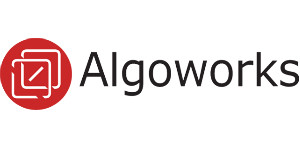
Simplifying technology. Smartly. Disruptively. Globally.
Algoworks is a trusted DevOps consulting company renowned for its comprehensive suite of services. With expertise in automation, integration, and development, they enable businesses to optimize their operations effectively. Their experienced team crafts tailor-made solutions, ensuring a seamless transition to DevOps methodologies. Visit their website for more information.
Visit Website
- Team Size: 500-1k
- Hourly Rate: $25 – $49
- Location: California, USA
- Average Review Rating: 4.7
- Service Lines: Mobile App Development (80%), CRM Consulting and SI (20%)
- Mobile Focus: Games (65%), Other enterprise apps (25%), Social (10%)
- Clients: Enterprise (>$1B) (50%), Midmarket ($10M – $1B) (40%), Small Business (<$10M) (10%)
Contact Us
3. XenonStack

A Stack Innovator
XenonStack specializes in product engineering and technology services, offering advanced digital enterprise solutions. Leveraging DevOps, Big Data Engineering, Data Analytics, and more, they empower businesses to transform their operations and harness the potential of data assets. Their expertise in cloud consulting, including AWS, Google Cloud, and Azure, makes them a preferred DevOps consultancy.
Visit Website
- Team Size: 10-250
- Hourly Rate: $25 – $49
- Location: California, USA
- Average Review Rating: 4.5
- Service Lines: BI & Big Data Consulting & SI (25%), Cloud Consulting & SI (25%), AI Development (15%), IT Managed Services (15%), Cybersecurity (10%), Enterprise App Modernization (10%)
- Clients: Midmarket ($10M – $1B) (55%), Enterprise (>$1B) (25%), Small Business (<$10M) (20%)
- Cloud Computing Focus: Natural Language Processing (35%), Machine Learning (30%), Cognitive Computing (20%), Chatbots & Conversational AI (15%)
Contact Us
4. Contus

Gateway of Digital
Contus is a premier USA-based DevOps company that excels in providing innovative solutions. Their adept team harnesses cutting-edge technology to enhance development and operations, ensuring accelerated product delivery. With a client-centric approach, they furthermore tailor DevOps strategies to individual business needs, showcasing wide-ranging expertise across various industries.
Visit Website
- Team Size: 250-500
- Hourly Rate: $25 – $49
- Location: Atlanta, USA
- Average Review Rating: 4.2
- Service Lines: IoT Development (30%), Mobile App Development (20%), Web Development (20%), AR/VR Development (10%), Custom Software Development (10%), Wearable App Development (10%)
- Cloud Computing Focus: AWS (100%)
- Clients: Midmarket ($10M – $1B) (50%), Small Business (<$10M) (30%), Enterprise (>$1B) (20%)
Contact Us
5. Mission Cloud

Accelerate your business and achieve your goals
Mission Cloud is dedicated to providing cloud-based DevOps solutions that empower businesses in the digital age. They furthermore help organizations embrace agile methodologies and automate software delivery pipelines, driving efficiency and innovation. With certified DevOps engineers and a deep understanding of cloud platforms like AWS, Azure, and GCP, Mission Cloud stands out as a leader in the field.
Visit Website
- Team Size: 10-250
- Hourly Rate: $100 – $199
- Location: Los Angeles, USA
- Average Review Rating: 3.9
- Service Lines: Cloud Consulting & SI (25%), AI Development (20%), IT Managed Services (20%), IT Strategy Consulting (20%), BI & Big Data Consulting & SI (15%)
- Cloud Computing Focus: Machine Learning (100%), Chatbots & Conversational AI (30%), Cognitive Computing (30%)
- Clients: Midmarket ($10M – $1B) (50%), Small Business (<$10M) (30%), Enterprise (>$1B) (20%)
Contact Us
Whether you’re looking to optimize your IT operations, transform your business processes, or enhance development and delivery, furthermore these top DevOps consulting companies in the USA have the expertise to meet your needs. By leveraging their cutting-edge solutions, comprehensive knowledge, and proven track records, you can navigate the complex landscape of modern technology with confidence. DevOps has become an essential paradigm in achieving operational excellence and accelerating digital transformation. The specialized services offered by these companies span a wide range of industries and requirements, also ensuring that your organization can effectively implement DevOps methodologies that fit your unique challenges.
Also read: The Future of DevOps in the USA
Conclusion
In conclusion, the role of a DevOps engineer is pivotal in the ever-evolving landscape of technology and innovation. Their ability to bridge the gap between development and operations, automate processes, manage infrastructure, and foster collaboration makes them indispensable assets for any US project. When hiring a DevOps engineer, it’s essential to prioritize technical expertise, problem-solving skills, collaboration, and adaptability. By following a strategic hiring process and crafting a compelling job description, you can attract and secure top DevOps talent. Embracing remote DevOps hiring widens the talent pool, but effective communication and onboarding are crucial for success. Lastly, consulting reputable DevOps companies in the USA can provide specialized expertise to drive your project’s success through operational excellence and digital transformation.





